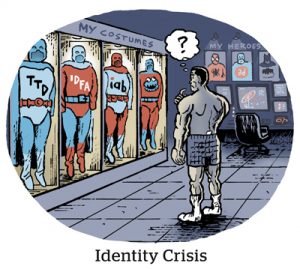 Last week’s stock market dip and subsequent recovery could have particularly troublesome consequence for ad tech firms looking to play on public markets.
Last week’s stock market dip and subsequent recovery could have particularly troublesome consequence for ad tech firms looking to play on public markets.
Though market volatility is a constant, last week’s flux put a spotlight on a handful of ad tech firms often mentioned as IPO candidates, among them AppNexus, Quantcast, Collective, Dstillery, PubMatic, Integral Ad Science, ironSource, Centro, Exponential Interactive and Turn.
“Market volatility enhances risk aversion with certain investors,” said Elgin Thompson, managing director of Digital Capital Advisors. “Many of the issues facing ad tech companies play into that risk assessment – lack of differentiation, user aversion to intrusive ads, privacy concerns, poor performance in existing public companies [and] the enticement of investing in unicorns outside of ad tech.”
Investors aren’t necessarily fleeing toward safety, he added, but will likely scrutinize business models.
“Obviously, not all ad tech companies have suspect models,” Thompson said. “There are a few great companies out there, but with volatility comes a desire to avoid even the hint of unnecessary risk.”
Last week’s volatility could add to investor unease, said Phil Fresen, managing director of boutique investment banking firm Garros Group.
“Given the sloppy markets overall, that’s got to make it difficult for companies to go public, much less a sector that’s still trying to build a foothold in the public markets,” Fresen said.
The ad tech companies most likely to exit will be at-scale firms with differentiated capabilities and proven profit margins, said Mediaocean CEO Bill Wise. IPO candidates should also have a strong, recurring revenue stream versus revenue generated by sales insertion orders, he said.
But Fresen added that only a few of the ad tech players actually have the scale and profitability to go public, and AppNexus tops the list.
“They have the size, the scale, the growth and the right attributes that they could go public in a normal public market environment,” he said.
And though the magnitude of last week’s swing was abnormal, AppNexus is still primed to exit, said Thompson, adding that the ad tech space needs a Google competitor.
“With the exception of the last 10 days, AppNexus can go public when it desires,” Thompson said.
In many ways, Criteo embodied a successful ad tech public exit (though it too got hit by last week’s volatility).
“Criteo is differentiated because they take a vertical-by-vertical approach and they’re global, as opposed to a vast majority of their revenue coming from the US,” Wise said. “Criteo also hasn’t missed a quarter since going public.”
But scale isn’t always enough. Consider Turn, who some thought might exit a year ago but has since struggled with leadership churn.
“Turn is trading well below their last round,” said one financial adviser who wished to remain anonymous. “The place is a mess. They’re looking for a CEO and they’re losing market share to the agency trading desks.”
But according to Turn’s VP of communications, Jonathan Gardner, Turn has seen significant growth year over year.
“The long-term prospects for ad tech companies should be based on the value they provide marketers and the resulting growth in business with those marketers,” Gardner said. “We have been growing significantly, with our agency- and brand-direct business up nearly 100% year over year.”
The buying platforms, however, face downward pressure on margins due to the competitive DSP landscape, which includes Turn, MediaMath, AppNexus and The Trade Desk.
“You can’t control the public markets, but you need to get profitable,” Thompson said, adding that differentiation is key. “You should consider building or acquiring technology and then convince customers that you’re more than a media arbitrage business.”















